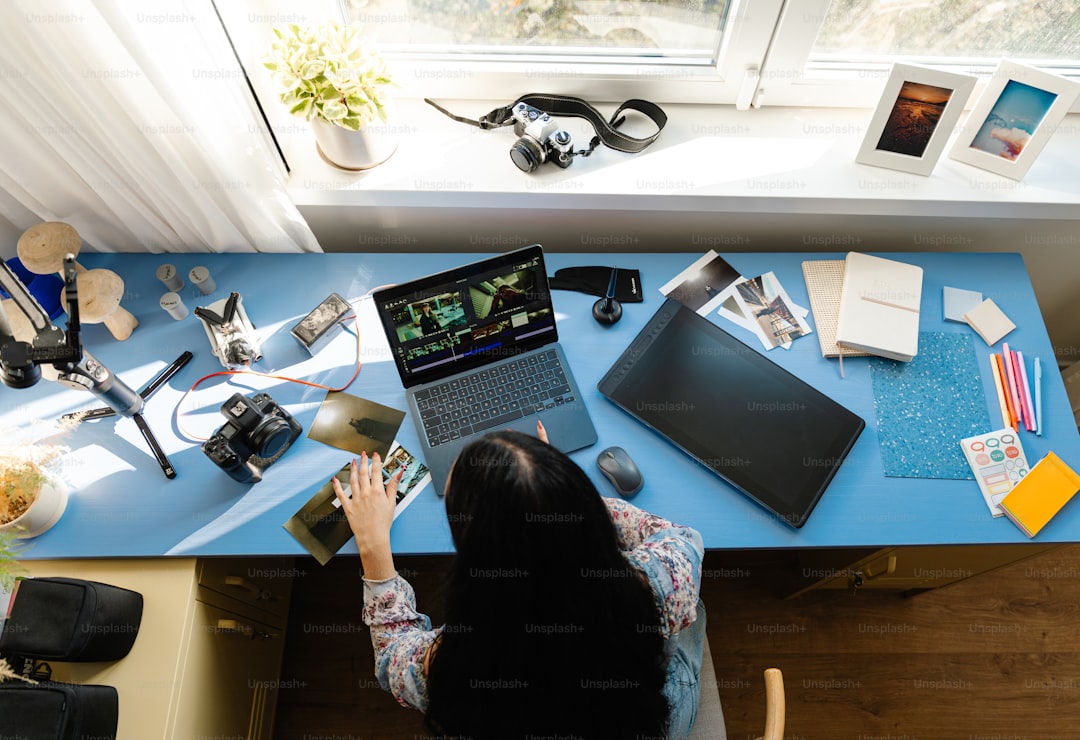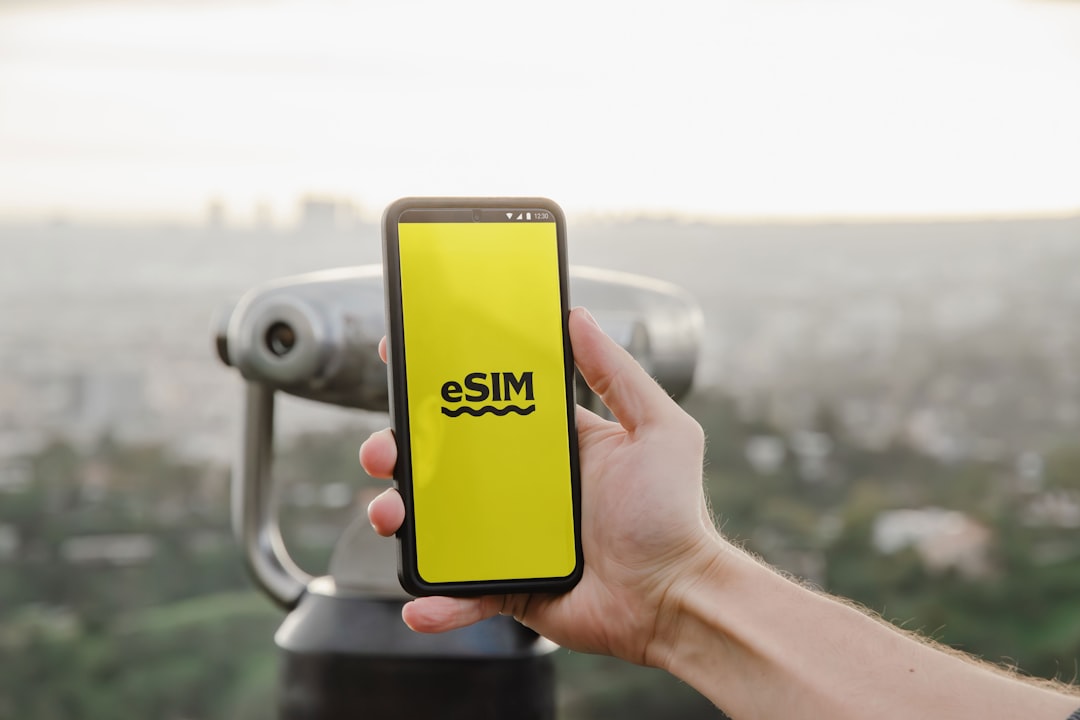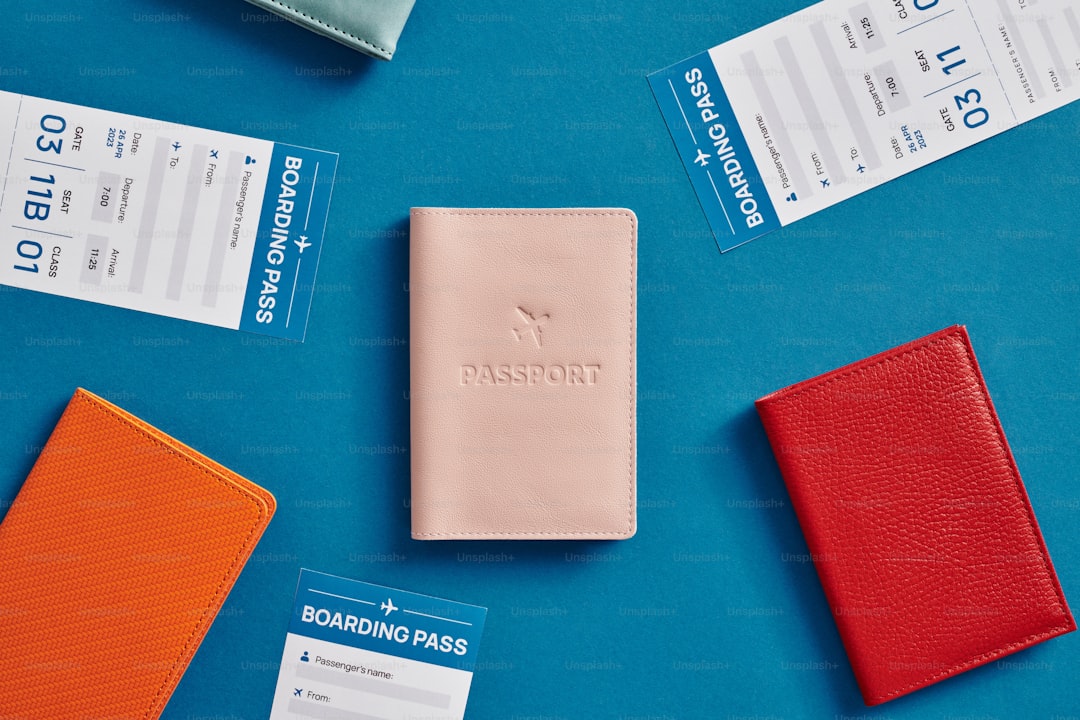Connecting Wanderers Through Global Nomad Community Events

The Power of Shared Experiences
The digital nomad lifestyle is built on freedom, flexibility and the constant search for new horizons. Yet the very nature of that freedom can also create a sense of isolation. When you are constantly moving from one city to the next, the familiar faces that once anchored daily routines become scarce. Community events step in as the bridge that turns solitary travel into a shared adventure. They bring together people who understand the rhythm of remote work, who speak the language of fast internet and sunrise coffee, and who are eager to exchange ideas, stories and opportunities.
A well‑crafted event does more than fill a calendar slot. It creates a micro‑ecosystem where learning happens organically, collaborations are sparked, and friendships are forged over shared meals and late‑night brainstorming sessions. The impact ripples far beyond the duration of the meetup, influencing career trajectories, personal growth and even the way a nomad perceives the world.
Why Global Nomad Events Matter
Building Trust in a Distributed World
Trust is the cornerstone of any community. For nomads who rarely meet face to face, trust must be cultivated through repeated, meaningful interactions. When a group gathers in a physical space, even for a few hours, the barriers that exist in digital communication begin to dissolve. Eye contact, body language and spontaneous conversation reveal nuances that chat apps cannot convey. Over time, these moments accumulate into a reservoir of trust that fuels future collaborations.
Accelerating Knowledge Transfer
Nomads come from diverse professional backgrounds—software development, design, marketing, education, health care and more. An event that brings together this variety becomes a living library of expertise. A workshop on building resilient SaaS products can be followed by a panel on sustainable travel, and later by an informal roundtable on mental health for remote workers. Participants leave with a richer skill set than they could have acquired alone.
Enhancing Visibility and Opportunity
Being present at a well‑organized meetup signals commitment to the community. It puts you on the radar of potential clients, partners and mentors. Many nomads report landing freelance contracts, joining startup teams or even finding co‑founders after a single conversation at a local gathering. The exposure is reciprocal; event hosts also gain credibility as curators of valuable experiences.
Strengthening Local Economies
When nomads converge in a city, they generate demand for coworking spaces, cafés, restaurants and local services. Community events amplify this effect by drawing participants from neighboring regions. The resulting economic boost can lead to better infrastructure for both locals and visitors, creating a virtuous cycle of hospitality and innovation.
Types of Nomad Community Events
Informal Meetups
These are low‑key gatherings often held in cafés, parks or coworking lounges. The purpose is simple: meet, chat, exchange contact details. They may revolve around a theme such as “remote work tools” or be completely open‑ended. Because they require minimal planning, they can be organized on short notice and are ideal for newcomers looking to make their first local connection.
Skill‑Focused Workshops
Workshops dive deep into a specific topic. A typical format includes a short presentation, hands‑on activities, and a Q&A segment. Topics range from “advanced JavaScript patterns” to “photography for travel bloggers.” The interactive nature of workshops ensures participants leave with actionable takeaways.
Hackathons and Co‑Creation Sprints
In a hackathon, teams work intensively over a set period—often 24 to 48 hours—to build a prototype, solve a problem or create a new service. The pressure and collaboration foster rapid learning and often produce tangible products that can be launched after the event. Co‑creation sprints follow a similar model but may focus on design thinking, social impact projects or community‑driven initiatives.
Retreats and Immersive Experiences
Retreats combine work, learning and leisure in a scenic setting. They may span a weekend or a full week and typically include structured sessions, free time for exploration, and communal meals. The extended duration allows deeper relationships to form and provides space for personal reflection.
Panel Discussions and Fireside Chats
These events feature a moderator and a handful of speakers who share insights on a chosen subject. The format encourages audience participation through questions and comments. Panels are especially effective for discussing trends, challenges and future directions of the nomadic lifestyle.
Cultural Immersion Tours
Beyond professional development, cultural tours invite participants to explore the host city’s heritage, cuisine and traditions. Guided walks, cooking classes, language exchanges and volunteer activities enrich the nomadic experience and promote respectful engagement with local communities.
Virtual‑Hybrid Gatherings
While the focus here is on in‑person connection, many events now blend physical and online participation. Hybrid models expand reach, allowing those who cannot travel to still contribute and benefit. They also provide a safety net during periods of travel restrictions.
Finding the Right Event for You
Online Platforms and Communities
Several websites act as hubs for nomad events. They aggregate listings, allow you to filter by location, date and theme, and often include reviews from past attendees. Joining these platforms gives you access to a constantly updated calendar and the ability to RSVP directly.
Social Media Groups
Facebook, LinkedIn and Discord host numerous groups dedicated to remote work and nomadic life. Group admins frequently post about upcoming meetups, share event flyers and coordinate volunteer opportunities. Engaging with the conversation in these groups can also help you gauge the vibe of the community before attending.
Coworking Spaces and Hostels
Many coworking locations and boutique hostels have bulletin boards or newsletters that promote local events. Staff members often act as community managers, curating gatherings that align with the interests of their members. Stopping by a coworking lounge and asking about upcoming activities can lead to unexpected invitations.
Meetup Apps and Event Calendars
Apps designed for local meetups provide geolocation features that show events happening within a short radius of your current location. These tools are especially useful when you are traveling to a new city and need to discover activities quickly.
Word of Mouth
One of the most reliable ways to learn about events is through personal recommendations. After attending a meetup, ask participants if there are other gatherings they enjoy. Building a small network of trusted contacts can keep you informed about hidden‑gem events that may not be widely advertised.
Hosting a Successful Nomad Event
Defining Purpose and Audience
Begin by clarifying what you want to achieve. Is the goal to foster networking, teach a skill, or showcase local culture? Understanding the primary purpose helps you decide on format, venue and promotion strategy. Also consider who you want to attract—digital marketers, software developers, creative freelancers or a mixed audience. Tailoring the event to a specific demographic increases relevance and attendance.
Selecting an Accessible Venue
Choose a location that is easy to reach by public transport and offers reliable Wi‑Fi. The space should accommodate the expected number of participants comfortably, with options for both group activities and informal conversations. If the event includes meals, ensure the venue has a kitchen or nearby catering options.
Planning the Schedule
Create a timeline that balances structured content with free networking time. A typical flow might include an opening welcome, a short keynote, breakout sessions, a break for refreshments, a panel discussion, and a closing social hour. Avoid overloading the agenda; leave room for spontaneous interactions that often lead to the most memorable moments.
Managing Logistics
Prepare a checklist that covers equipment (projectors, microphones, power strips), signage, registration materials and emergency contacts. If you are serving food, consider dietary restrictions and provide clear labeling. Test all technical components in advance to avoid disruptions.
Promoting the Event
Leverage multiple channels to reach potential attendees. Post announcements on relevant online platforms, share eye‑catching graphics on social media, and ask partners to spread the word through their newsletters. Encourage early registration by offering a limited number of free tickets or exclusive perks such as a reserved seat at the front of the room.
Fostering Inclusivity
Create an environment where everyone feels welcome. Use gender‑neutral language in all communications, provide translation support if the event includes non‑English speakers, and ensure the venue is accessible to individuals with mobility challenges. Set clear community guidelines that discourage harassment and promote respectful dialogue.
Ensuring Safety
Develop a safety plan that includes emergency exits, first‑aid supplies and a point of contact for any incidents. If the event takes place in the evening, consider lighting and transportation options for participants returning to their accommodations.
Capturing Feedback
After the event, send a brief survey to gather participants’ impressions. Ask about the relevance of the content, the quality of the venue, and suggestions for future topics. Analyzing this feedback helps you refine future gatherings and demonstrates that you value the community’s voice.
Making the Most of Your Participation
Preparing Ahead
Read any pre‑event material provided by the organizers. If the event has a theme, think about how your experience aligns with it and prepare a short introduction that highlights your background and interests. Having a clear value proposition makes it easier for others to engage with you.
Engaging Actively
During sessions, ask thoughtful questions and contribute ideas. In networking breaks, approach groups with open‑ended prompts such as “What projects are you currently excited about?” or “How did you decide to become a nomad?” Listening actively shows respect and often uncovers common ground.
Exchanging Contact Information
Collect business cards, exchange social media handles or use a digital contact‑sharing app. Immediately after the event, send a brief follow‑up message that references a specific part of your conversation. This personal touch increases the likelihood of continued interaction.
Contributing to the Community
Offer to share your expertise in future events, volunteer as a session moderator or help with event promotion. Consistent involvement not only builds your personal brand but also strengthens the overall ecosystem.
Reflecting on the Experience
Take time after the event to note key takeaways, new connections and potential collaborations. Documenting these insights in a journal or a digital note helps you integrate the experience into your broader professional journey.
Success Stories from Around the World
A Remote Designer Finds a Co‑Founder in Bali
During a weekend workshop on user experience design at a beachfront coworking space in Canggu, a graphic designer met a software developer who was looking for a design partner to launch a SaaS platform for travel planners. Their complementary skill sets and shared passion for sustainable tourism led to the creation of a startup that now serves travelers in over 30 countries.
A Digital Marketer Lands a Long‑Term Client in Lisbon
At a monthly meetup for content creators held in a historic café, a freelance marketer presented a case study on SEO for travel blogs. An attendee who ran a boutique hotel chain approached her after the session, impressed by the results. The conversation evolved into a six‑month consulting contract that doubled the hotel’s organic traffic.
A Community Organizer Builds a Regional Network in Southeast Asia
A nomad who had spent several months traveling across Thailand, Vietnam and Cambodia noticed a lack of coordinated events for remote workers. She organized a series of pop‑up meetups in each city, inviting local entrepreneurs and expatriates. Over a year, these gatherings grew into a regional network that now hosts quarterly conferences, facilitating cross‑border collaborations.
Emerging Trends Shaping Nomad Gatherings
Hybrid Experiences as the New Norm
Post‑pandemic travel has accelerated the adoption of hybrid event models. Organizers now provide a physical venue for local participants while streaming sessions to remote attendees. Interactive tools such as virtual breakout rooms and live polls enable remote participants to engage as if they were present in the room.
AI‑Powered Matchmaking
Platforms are experimenting with artificial intelligence to suggest connections based on skills, interests and past event attendance. Attendees receive personalized introductions before the event, streamlining networking and increasing the relevance of conversations.
Sustainable Event Practices
Environmental consciousness is influencing how events are planned. Organizers prioritize venues with green certifications, use reusable materials for signage, and source locally produced food. Carbon offset programs are also becoming a standard offering for participants traveling long distances.
Micro‑Retreats in Remote Locations
Instead of large conferences in major cities, some groups are opting for intimate retreats in off‑the‑grid locations such as mountain lodges or desert camps. These settings foster deeper connections and provide a break from the usual hustle of urban coworking spaces.
Skill‑Exchange Economies
A growing number of events operate on a barter system where participants exchange services rather than pay a registration fee. For example, a developer might offer a coding workshop in exchange for a photography lesson. This model promotes mutual learning and reduces financial barriers.
Crafting Your Own Path in the Global Nomad Community
The landscape of digital nomadism is ever‑changing, but the core human desire for connection remains constant. By actively seeking out, contributing to and even creating community events, you become a catalyst for both personal growth and the collective evolution of the nomadic ecosystem. Whether you are a seasoned traveler or just starting your remote work journey, the opportunities to engage are abundant and varied.
Remember that each meetup, workshop or retreat is more than a line on a calendar. It is a chance to exchange ideas, discover new possibilities and build relationships that can shape the next chapter of your career and life. Embrace the invitation to step out of the solitary screen and into a shared space where wanderers become collaborators, friends and co‑creators of a vibrant global community.
Random Posts

Legal Strategies for Digital Nomads Managing Money
Discover practical legal tactics for digital nomads to stay tax compliant, protect assets, and simplify cross-border banking so your money stays secure and your finances run smoothly anywhere you work
1 month ago

Smart Finance and Tax Strategies for Global Nomads
Smart finance and tax tips for digital nomads: banking, payments, compliance and asset protection made simple so you can travel worry free
2 months ago

Cultural Hotspots Where Work Meets Adventure in Europe
Explore Europe’s top cultural hotspots where reliable internet, vibrant coworking scenes and affordable living blend with historic charm, cafes, rivers and mountain thrills - perfect for digital nomads seeking work and adventure
2 months ago

Your Complete Bali Visa Guide for Digital Nomads
Your ultimate Bali visa guide for digital nomads: compare visa types, follow easy step-by-step applications, learn how to extend your stay, and start working from paradise with confidence.
2 months ago

Protecting Your Health Abroad with Smart Insurance Choices
Discover how to pick health and travel insurance that truly protects digital nomads on the move. Learn why standard plans fail, compare options, avoid costly mistakes, and secure affordable coverage worldwide.
3 weeks ago
Latest Posts

Essential Software Every Remote Professional Should Use
Master remote work with essential tools: instant messaging like Slack, high definition video calls such as Zoom, and asynchronous voice apps. Streamline communication, stay connected and boost productivity.
1 day ago

Mastering Remote Work Productivity for Digital Nomads and Freelancers
Learn proven habits, tools, and tactics that help digital nomads and freelancers stay focused, deliver quality work, and maintain a sustainable lifestyle while traveling the world.
1 day ago

Tech‑Friendly European Towns Perfect for Remote Living
Discover Europe’s best small towns where fast internet, affordable living and vibrant tech communities let you work remotely while soaking up historic charm, lakeside views or mountain air.
1 day ago